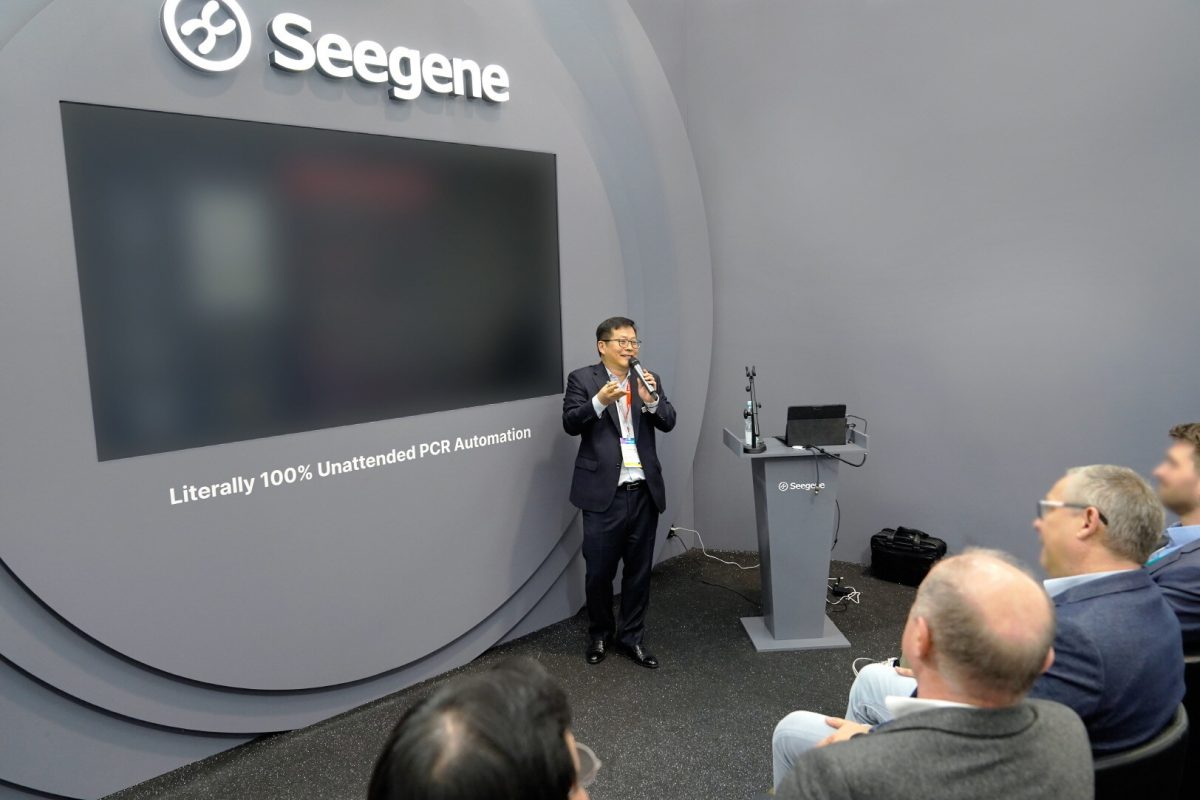Genentech, a member of the Roche Group (SIX: RO, ROG; OTCQX: RHHBY), today announced a multi-year strategic research collaboration with NVIDIA that couples Genentech’s artificial intelligence (AI) capabilities, extensive biological and molecular datasets, and research expertise with NVIDIA’s world-leading accelerated computing capabilities and AI to speed up drug discovery and development.
The collaboration is designed to significantly enhance Genentech’s advanced AI research programs by transforming its generative AI models and algorithms into a next-generation AI platform, expediting the discovery and delivery of novel therapies and medicines to people.
The companies will join forces to accelerate and optimize Genentech’s proprietary machine learning (ML) algorithms and models on NVIDIA DGX Cloud, which provides a training-as-a-service platform built on dedicated NVIDIA AI supercomputing and software, including NVIDIA BioNemo for generative AI applications in drug discovery.
NVIDIA will share its computing expertise with Genentech’s teams of computational scientists with the goal of optimizing and scaling Genentech’s models, and in that process, may improve or enhance NVIDIA’s platforms.
“By harnessing the power of AI models and algorithms, with our unique data and experiments, we’re unlocking scientific discoveries with incredible speed and generating insights at an unprecedented scale,” said Aviv Regev, EVP and head of Genentech Research and Early Development (gRED). “Bringing science and technology together has always been a foundation of biomedical breakthroughs at Genentech. We are thrilled to join forces with NVIDIA to further optimize our drug discovery and development to deliver treatments that transform people’s lives.”
“The greatest impact of generative AI is to revolutionize the life science and healthcare industry,” said Jensen Huang, founder and CEO of NVIDIA. “Our collaboration to create Genentech’s next-generation AI platform will dramatically accelerate the pace of drug discovery and development.”
The collaboration with NVIDIA complements Genentech’s AI/ML teams, which are developing and leveraging AI and ML foundational models across numerous research areas including diverse therapeutic modalities. Genentech scientists aim to glean new insights for target and drug discovery and to answer fundamental questions about human biology and disease.
The collaboration will also help accelerate Genentech’s “lab in a loop,” where extensive experimental data feeds computational models that uncover patterns and make new, experimentally testable predictions. Scientists quickly assess these predictions in the lab and the results are fed back into the models to improve the underlying computational model, allowing for iterative development of better therapies.
Activities will leverage publicly available and Genentech-proprietary data. Genentech will control the sharing of its proprietary data and NVIDIA will not have direct access to Genentech’s proprietary data unless granted by Genentech for use in a particular project during the term of that project.
Drug discovery and development is currently a lengthy, complicated, and uncertain process. Targets for novel medicines are difficult to predict, as is successfully developing a molecule as a potential therapeutic. Genentech believes that AI plays an invaluable role in revolutionizing drug development, in combination with people, science and technology, helping make it more predictable and cost-effective, boosting the success rate of R&D over the long term, and ultimately helping discover and design therapeutics to improve people’s lives.
